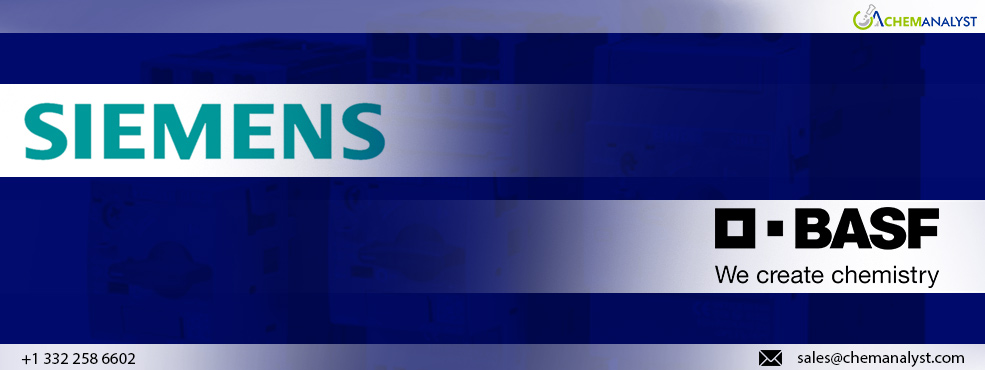Welcome To ChemAnalyst

Siemens Smart Infrastructure and BASF have announced a breakthrough in electrical safety technology with the introduction of the first product to incorporate components made from biomass-balanced plastics. Siemens SIRIUS 3RV2 circuit breaker, a key player in industrial and infrastructure electrical protection, now leverages sustainable materials Ultramid® BMBcertTM and Ultradur® BMBcertTM from BASF. These materials replace fossil feedstock with biomethane sourced from renewable agricultural waste, maintaining the high standards of quality and performance expected from traditional plastics. This transition in production is projected to reduce carbon dioxide emissions by approximately 270 tons annually. Customers adopting these products contribute to a circular economy and support sustainability initiatives.
This initiative aligns with Siemens' sustainability objectives outlined in its DEGREE framework, focusing on decarbonization and resource efficiency. Siemens has committed to a science-based decarbonization goal of limiting global warming to 1.5°C, including a 90 percent reduction in scope 1 and 2 emissions by 2030, and implementing Robust Eco Design across all relevant product lines by 2030.
Looking ahead, Siemens plans to extend the use of sustainable materials across its broader SIRIUS industrial controls range. Material choice, alongside product design, features, and manufacturing processes, will continue to play a critical role in lowering carbon footprints and preserving natural resources. The Siemens SIRIUS 3RV2 circuit breaker signifies its commitment to sustainability through the Siemens EcoTech label. This designation empowers customers to make informed decisions based on the product's environmental impact.In addition to using biomass-balanced plastics for most of its housing and functional components, the product offers enhanced energy efficiency compared to its predecessors, further supporting sustainability goals.
Andreas Matthé, CEO of Siemens Smart Infrastructure's Electrical Products division, emphasizes their commitment to enhancing asset performance, availability, and reliability with resource-efficient, circular products. Collaborating with BASF, a leader in sustainable plastics innovation, strengthens their ability to optimize energy use, production, and supply chains across product lifecycles, ensuring continued advancements in sustainability and operational excellence for their customers.
BASF is strategically shifting towards renewable and recycled materials in its product manufacturing to support the circular economy and reduce reliance on fossil resources. This involves gradually substituting fossil fuels with bio-based and recycled inputs throughout its intricate value chains. Under the mass balance approach, BASF integrates renewable or recycled materials early in production, ensuring that products derived from these sustainable sources meet certification standards. This initiative ensures that BASF incorporates sustainable materials into its ongoing production processes within the BASF Verbund network, promoting environmental responsibility and resource efficiency.
In the context of business operations, utilizing the mass balance method allows for the integration of different alternative raw materials like biomethane, bio-naphtha, or pyrolysis oil into the value chain. BASF ensures that the bio-naphtha and biomethane it uses are certified as sustainable under recognized systems such as ISCC PLUS and REDcert.
We use cookies to deliver the best possible experience on our website. To learn more, visit our Privacy Policy. By continuing to use this site or by closing this box, you consent to our use of cookies. More info.
